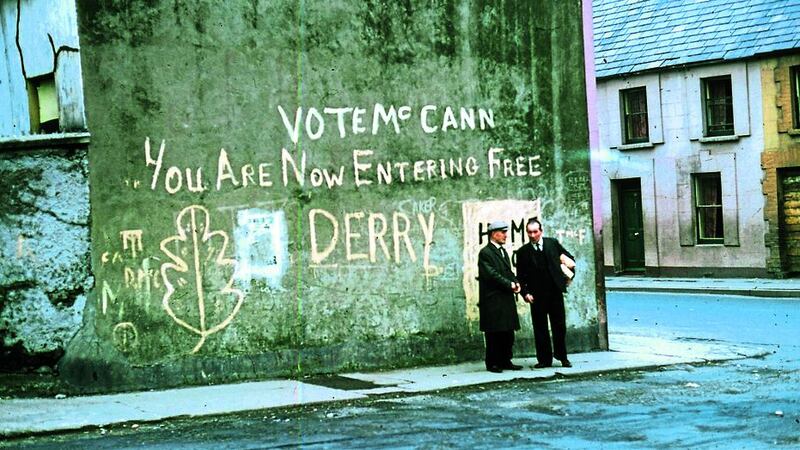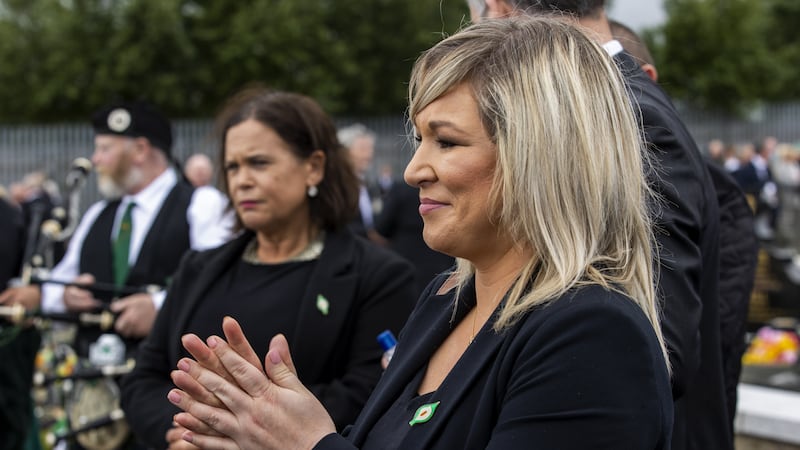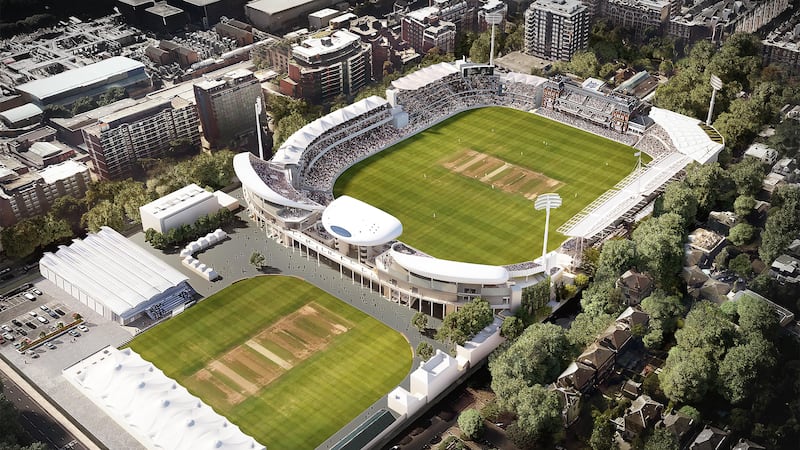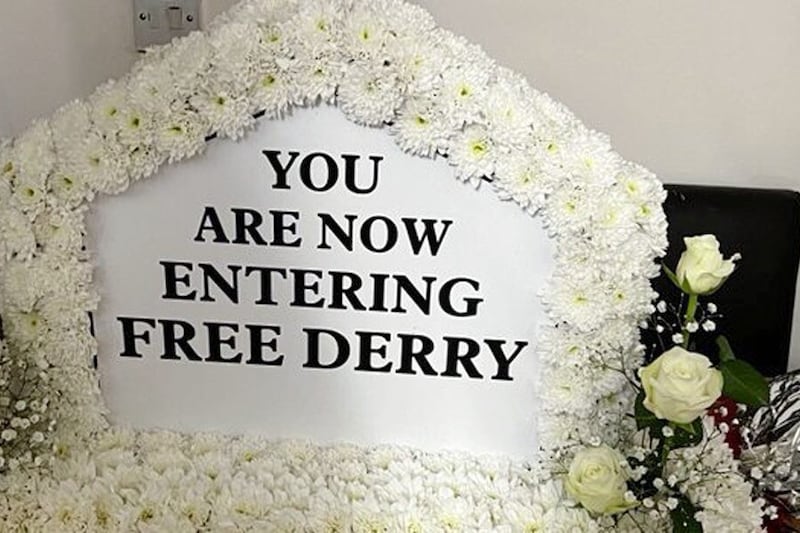Free Derry Corner might be known all over the world as a monument to the civil rights’ movement but to John McKane, it was always simply home.
His family were the last to live at number 33 Lecky Road, moving out just before the iconic words 'You Are Now Entering Free Derry' were scrawled on its gable fifty years ago on January 5 1969. It marked the beginning of Free Derry, a time when the writ of British parliament failed to extend to the city’s Bogside.
The house was home to three generations of the McKane family after his parents moved in. After he married, Mr McKane (79) and his wife Ann moved into the backroom of his parents’ home where their first two sons, Damien and Brian were born. The gable of the house was always a meeting place. Known in the Bogside as Kitty Kane’s corner, local men would gather at the corner to discuss events of the day.
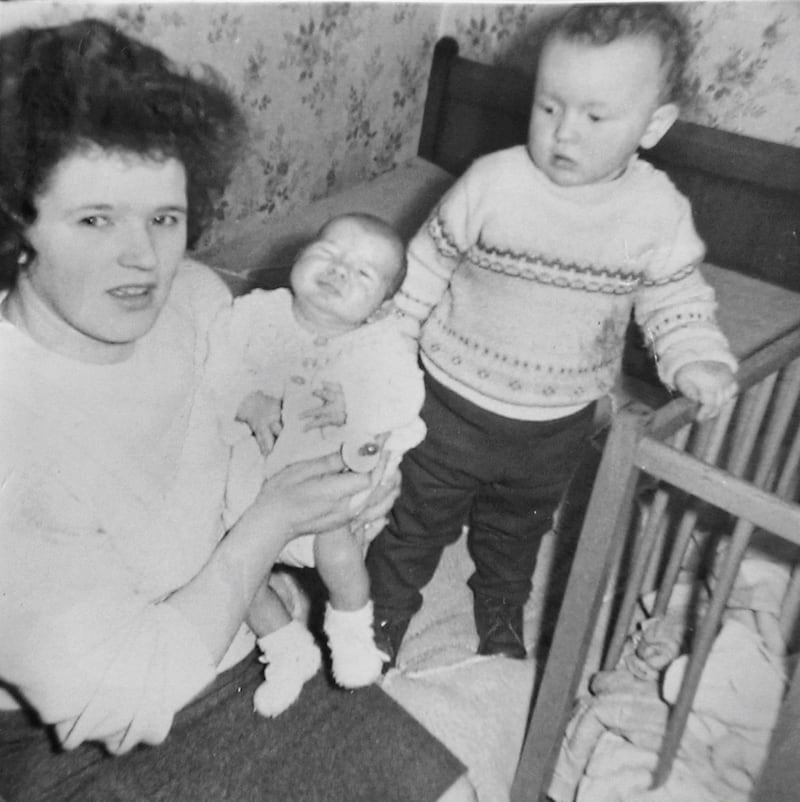
The idea of a newly married couple living with their parents was not unusual in Derry’s Bogside in the 1950s and 1960s. As the unionist gerrymander of the city’s Corporation tightened, more and more Catholic families were forced to live in tenement-like conditions.
The Bogside became the frontline of the battle for civil rights in the late 1960s. In pursuit of those rights, students from Queen’s University, under the People’s Democracy banner, marched from Belfast to Derry in early January 1969. Attacked by Paisleyites and loyalists along the route, they were finally beaten off the road at Burntollet Bridge just outside Derry on January 4 as the RUC looked on. That was the backdrop against which Free Derry Corner came into being.
That night news reached a meeting of Catholic ex-Servicemen in Derry’s Creggan that the B Specials were rampaging through the Bogside. Word was sent to the RUC’s Victoria Barracks that hundreds of men were marching from Creggan to drive them out.
John McKane remembers arriving at the gable of his old home to see the B Specials running out of the Bogside. Early the following morning, activist, Eamonn McCann suggested to Liam Hillen that he write the words 'You Are Now Entering Free Derry' on the wall of John’s former home.
Mr Hillen passed away last week and was buried on New Year’s Day. Months later, another Bogside man, John Caker Casey formalised the message in the block capitals with which visitors are familiar today.
Living on the front line, Mr McKane and his family were fully exposed to the early troubles. His son, Damien developed asthma through the CS gas which drenched their home almost on a daily basis while he himself helped police the Bogside in the absence of an acceptable police force.
“People now don’t realise what it was like. There were men from all over, who left work to come to defend free Derry; they had to because police were running amok. People were throwing stones that you’d never expect to see throwing stones.
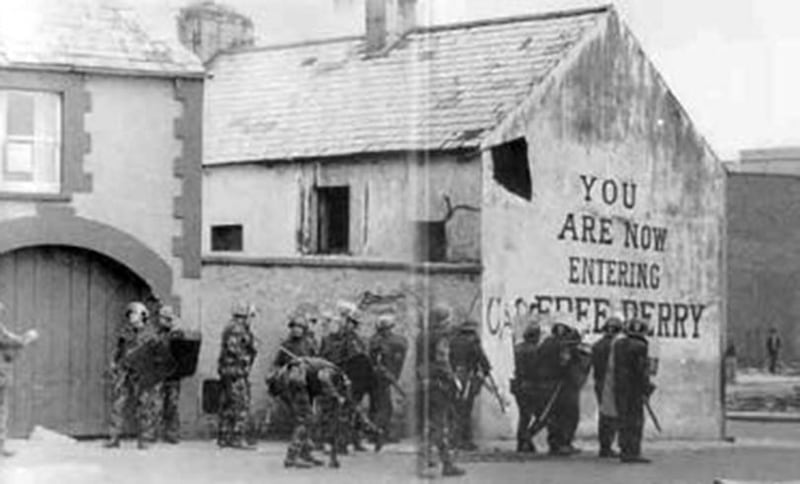
“We had to set up vigilantes too; we all had areas to go to. I remember being out at six in the morning but it was well organised you got tea and all,” the Derry man said.
He is still bemused by the thousands of people who come from all over the world to be photographed against the gable wall of the home he grew up in. However, he is pleased that his home has become an icon to civil rights.
For Mr McKane’s son, Damien - born in the back room of Free Derry Corner – the overwhelming feeling is one of pride that his family home became the centre of the struggle for civil rights.
“People say it’s Free Derry Corner but to us it’s 33 Lecky Road; to us it’s just home. The whole thing was about civil rights. People called it Kitty Kane’s Wall after my granny. It’s where people played handball,” he said.
For both men, it’s still special when they tell visitors to Free Derry Corner “that was my home”.
